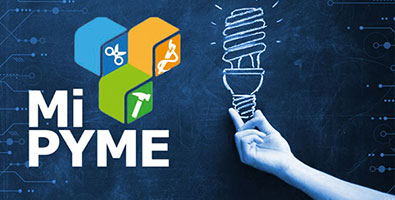Havana, Cuba: Alejandro Gil Fernández, deputy prime minister and head of the Ministry of Economy and Planning (MEP), announced that in mid-August and early September the creation of the first Micro, Small and Medium-sized Enterprises will take place in the country. Companies (mipymes by its Spanish initials), Radio Rebelde publishes.
In the informational space Round Table, he explained that the MEP creates the conditions for the design of legal norms, which is still undergoing a conciliation process.
It is expected to advance in June and July in the conciliation process, which is being accelerated to implement it as soon as possible and continue with the training, he said.
Therefore, in mid-August and the beginning of September there should already be a greater specificity, which is why we are working from now on to define which will be the first MSMEs and affiliated companies that will emerge in the state and non-state sector, he said.
The fundamental priority of the Cuban government is to focus on those sectors that generate a more practical impact on the main demands of the economy, he stressed.
The fundamental purpose of this strategy is to free the productive forces, remove the existing obstacles, that there is greater fiscal responsibility and that everything is done in a legal process, he said.
Gil Fernández assured that progress is already being made in this improvement and now we are working in parallel on the design of legal regulations and conciliation and on the organization of the entire process so that there is the greatest impact avoiding bureaucracy, taking advantage of the benefits of the possibilities electronic
How to advance this task with a comprehensive vision has already been decided and implementation is underway, he concluded.
Legal framework for micro, medium and small companies in Cuba advances
The legal framework that is conceived for micro, small and medium-sized companies (known as mipymes) includes decree-laws that define new concepts and other lower-level rules for procedural issues, and those that must be modified from time to time.
Johana Odriozola Guitart, vice-head of the Ministry of Economy and Planning explained that from the legal point of view, it has long been studied how other States regulate this actor and what role they play in their economies, in In order to build consensus on the fundamental principles that the Cuban case will have.
The vice minister pointed out that the legal order on the way starts from zero and has notable differences with that of non-agricultural cooperatives in the type of private property, number of employees, size and legal form that it will adopt: the limited liability company, which up to the moment was not contemplated in the legal system of the largest of the Antilles.
According to the official, unlike other countries, Mipymes are an organizational legal form with no antecedents in Cuba, so special attention should be paid to their link with the State and their benefits in the economy, beyond generating jobs. .
For the first time we are going to face a type of subject with two forms of property, state and private, and in the future it may even be mixed, Odriozola Guitart said when referring to the complexities of the process of creating the legal framework.
Complexity does not mean delay, she said, but with this improvement it is necessary to take a broader view from above so that there is coherence among all economic actors.
Becoming a micro, small or medium-sized company implies tangible benefits; Moving from a natural person to a legal entity offers greater guarantees for people, their employees and adds other contractual functions.
It also implies social responsibility, keeping accounting records and banking their operations, said the MEP deputy minister, while also anticipating that employees in Cuban MSMEs will have the same social security benefits as state workers.
Likewise, grouping together as Mipymes will allow the natural person to separate their assets and, in the event of any risk, to be able to cover their responsibility with the assets contributed to society, not personal assets.
It is expected that in addition to employment, MSMEs can export, contribute to the economy and the municipality, as public policies are approved that allow their development.
Odriozola Guitart explained that for the design of the legal framework the academy has been of great help, even university professors are working full time in this task.
She stressed that the enforcement of the rules will be the beginning of this new economic actor, which will have the accompaniment of the MEP and other responsible bodies in its implementation.
He said that the success of Mipymes will derive from the participation of all to also ensure the economic improvement that a society pursues with a view to being more prosperous and sustainable.
The Cuban State identifies as economic actors the socialist state enterprise (the main one), non-agricultural cooperatives, self-employment, and micro-small and medium-sized enterprises, the latter will be constituted in the state and private sectors with conditions similar in management.





